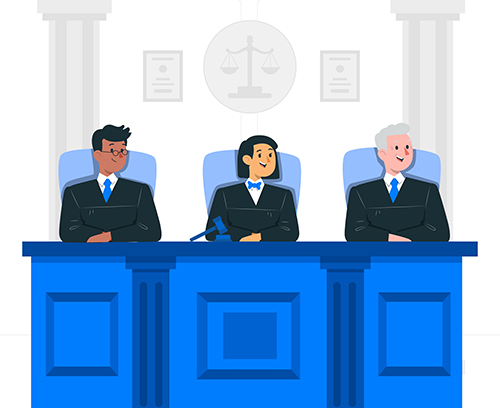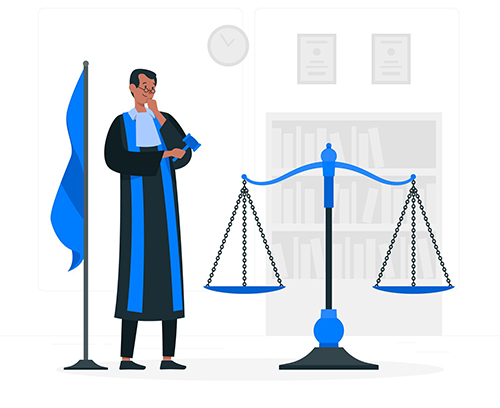Criminal Law
Practice Areas
- Home
- Practice Areas
- Criminal Law
Criminal Law
Criminal law serves as the backbone of the justice system, delineating behaviors that are deemed harmful to society and prescribing punishments for those actions. It establishes the parameters for determining guilt, ensures the rights of the accused are upheld, and seeks to provide a fair and just trial process. Whether addressing minor infractions or heinous acts, criminal law seeks to maintain social order, protect citizens, and provide a framework for retribution and rehabilitation.
Know Your Rights
At the heart of the justice system, criminal law ensures societal norms are upheld. Understand your rights when faced with accusations, including rights to a fair trial and legal representation.
Being aware of legal protections can make a significant difference in the outcome of cases, ensuring justice is not just served, but is also perceived to be done.
Rights of the Accused
Even when accused, every individual is entitled to certain rights, like the right to a fair trial and legal representation. Understanding these rights is essential for justice to prevail.
Criminal Procedure & Due Process
The legal system has established procedures to ensure justice is not just done, but seen to be done. Knowledge of these processes helps in navigating the complex criminal justice system.
Juvenile Justice System
Young offenders are treated differently under the law, emphasizing rehabilitation over punishment. Recognizing these differences is crucial for fair representation and outcomes.
Victim's Rights in Criminal Proceedings
Victims of crimes have rights, from restitution to protection from intimidation. Being informed of these ensures they are upheld during trials and proceedings.
Criminal Law International
- United Nations Office on Drugs and Crime (UNODC)
- International Criminal Court (ICC)
- INTERPOL - International Criminal Police Organization
- World Justice Project - Rule of Law Index
Criminal Law Organizations
- International Criminal Law Network (ICLN)
- Criminal Justice Policy Foundation
- International Society for the Reform of Criminal Law (ISRCL)
- Criminal Law Reform Now Network (CLRNN)



